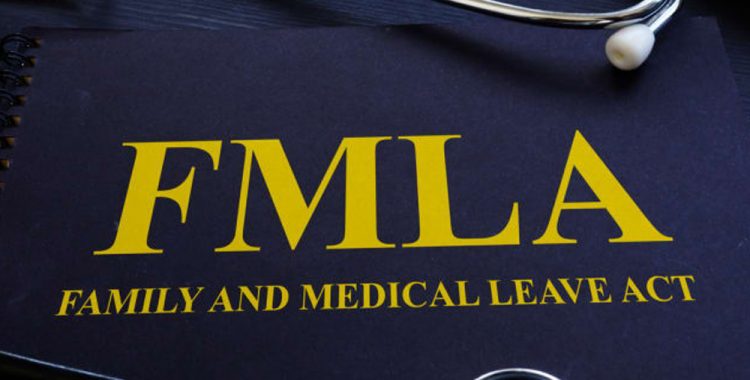
The Family and Medical Leave Act (FMLA) entitles you to take time off from work in case of family emergencies. These include:
- Birth of your child
- Caring for an immediate family member who is afflicted with a serious illness
- Taking care of your own health when you have a serious illness
Under the FMLA, you may take up to 12 weeks of unpaid leave per year without the risk of losing your job. Also, the health insurance you receive from your company will apply under the same terms as if you were still working.
You might be wondering if the FMLA also covers drug addiction treatment. Addiction, after all, is considered a serious illness. Read on to find the answer.
How would I know if I have drug addiction?
 Addiction to drugs produces drastic changes in your behaviors and lifestyle. In the late stages of addiction, you will completely lose control over drug use. Taking drugs will be the focus of your life, and you will lose interest in the more important things.
Addiction to drugs produces drastic changes in your behaviors and lifestyle. In the late stages of addiction, you will completely lose control over drug use. Taking drugs will be the focus of your life, and you will lose interest in the more important things.
In the early stages, though, the signs are more subtle. Even then, you will already have drug-seeking behavior that may interfere with fulfilling your responsibilities at work.
For instance, if you take drugs tonight, you may find yourself missing work tomorrow because you don’t feel well. This is a common sign of addiction — spending a good deal of time using drugs and recovering from their effects.
Your performance at work can also be affected. Drugs can disrupt sound judgment and impair concentration; in turn, you can’t function at your best on the job. Even if you don’t have intense drug cravings while at work, the effects on your brain will prevent you from performing the way you did before you used drugs.
Does the FMLA consider drug addiction as a serious health condition?
 The good news is yes, under the FMLA, drug addiction is one of those serious health concerns. This condition is a complex disorder that affects different aspects of your health — physical, mental, as well as emotional. Thus, you are entitled to the 12 weeks of medical leave if you need to seek drug addiction treatment.
The good news is yes, under the FMLA, drug addiction is one of those serious health concerns. This condition is a complex disorder that affects different aspects of your health — physical, mental, as well as emotional. Thus, you are entitled to the 12 weeks of medical leave if you need to seek drug addiction treatment.
However, there is a catch. A provision in the FMLA says, “Absence because of the employee’s use of the substance, rather than for treatment, does not qualify for FMLA leave.” In other words, you cannot use FMLA leave as an excuse to make more time to use drugs.
Also, if your company has a clearly established policy against the use of drugs in the workplace, you may still get fired if you have been using drugs on the job. That applies even if you are already taking your FMLA leave for treatment.
Will admitting to a drug problem get me fired?
 It depends on your employer and the company policy. Some companies are very strict with their anti-drug abuse policies, while others are more forgiving.
It depends on your employer and the company policy. Some companies are very strict with their anti-drug abuse policies, while others are more forgiving.
But these days, more and more companies understand the importance of helping employees suffering from drug addiction. They are now aware that addiction is a disease that can be treated. Perhaps most importantly, companies are beginning to realize the financial benefits of helping obtain drug addiction treatment.
In short, applying for an FMLA leave to get treatment carries a risk of job loss, but not seeking treatment at all is even more dangerous.
Continued drug abuse can not only get you fired, but it will also affect all areas of your life negatively. You could lose friends, strain your relationships with your family, and lose control over your drug use.
Will the FMLA help me pay for drug addiction treatment?
The FMLA does not provide any form of financial assistance. What you can do is ask your insurance provider if they cover the cost of treatment. By law, health insurers are required to include drug addiction treatment in their insurance plans. But how much of the total cost is covered varies between insurers.
If you do not have health insurance, or if you still have trouble paying for the remaining amount not covered by your provider, rehab centers offer financial assistance as well. You can also find centers that cater specifically to low-income individuals.
How will I know if I’m eligible for an FMLA leave?
Here are the conditions you must meet to qualify for medical leave under the FMLA:
- You must be working for an employer covered by the FMLA.
- You must have worked for 12 months or more.
- You must have worked at least 1,250 hours in the 12 months before your medical leave.
- You must be working in an area where your employer has at least 50 employees within 75 miles.
Most employers are actually covered by the FMLA, so there is no need to worry about the first provision. These are FMLA-covered employers according to the Department of Labor:
- Any employer in the private sector with 50 or more employees working 20 or more weeks per year
- Any local, state, or federal government agency
- Any public or private elementary or secondary school
Is 12 weeks enough to complete my treatment?
The longest inpatient drug addiction treatments last for three months. That’s about 12 weeks, so the provision in the FMLA is enough for you to complete an inpatient treatment program.
In this kind of treatment, you need to stay inside a rehab facility for the entire duration of the program. There, you will go through a variety of therapies to help you overcome the addiction.
Your schedule and daily routine will also be tightly regulated. This way, you can rebuild healthy habits that the addiction has taken away from you. You will learn to sleep and wake up at the same hours, as well as eat three healthy meals a day at consistent times.
Socialization with other recovering patients will additionally give you a sense of belongingness in your journey to recovery. When you have a sense that you’re not alone in your battle, it gives you more hope for winning against addiction.


